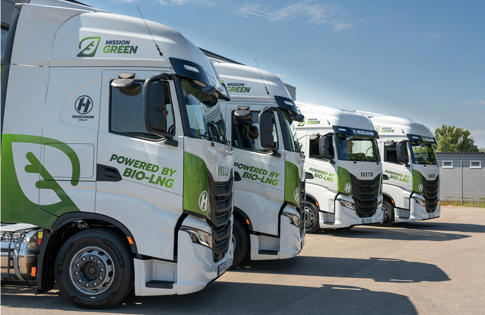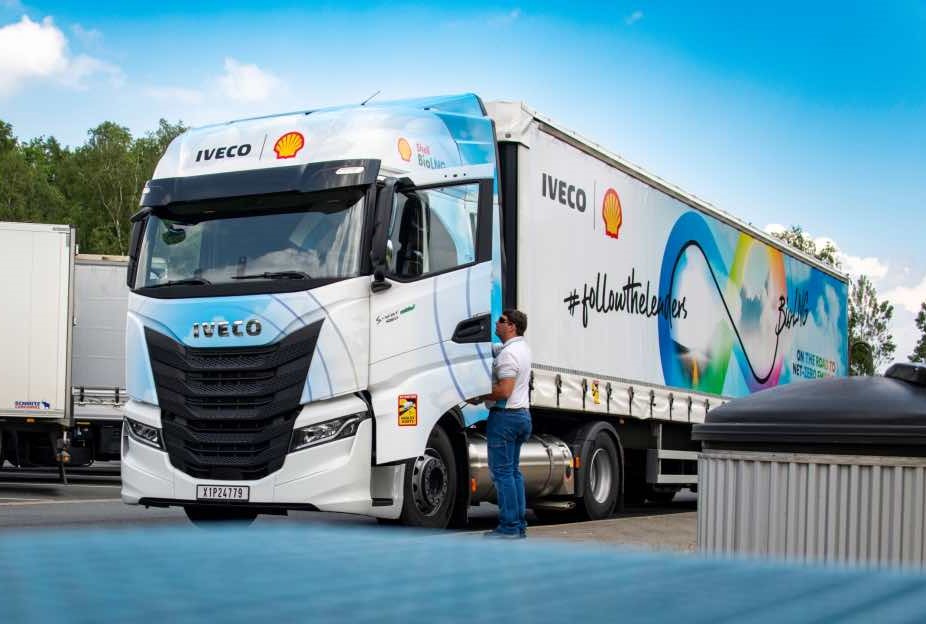With soaring fuel costs and mounting pressure to decarbonise, truck OEMs have spent many years exploring cleaner, more cost-effective alternatives to diesel, such as biodiesel and liquefied natural gas (LNG). Today, biomethane (bio-LNG), a renewable fuel derived from organic waste, is emerging as a practical and immediately available net-zero trucking solution. Fully compatible with existing natural gas infrastructure, biomethane trucks offer fleet operators a real opportunity to eliminate truck carbon emissions while optimising fleet tonne-kilometres.
Right now, Iveco is going all out to lead the way in bio-LNG truck development, delivering metrics that prove the efficacy of this circular energy source and how it could transform long-haul logistics in Europe – and hopefully, eventually across Southern Africa.
Iveco’s bio-LNG Tour d’Europe
Iveco is currently taking part in the Tour d’Europe 2025 – an initiative that brings together more than 20 partners from across the European automotive value chain – to raise awareness of renewable fuels and their role in achieving climate neutrality by 2050, as outlined in the European Green Deal.
Joining the tour with its latest S-Way LNG truck powered by biomethane, Iveco is demonstrating that renewable gas is not just effective in reducing CO2 emissions but also a scalable and proven solution for decarbonising commercial road transport. With around 800 biomethane refueling stations now in operation across Europe, international haulage routes can be covered exclusively using bio-LNG.
The Tour, which runs from March through to June 2025, features commercial vehicles powered by biomethane, hydrotreated vegetable oil (HVO) and bioethanol. Along the route, public events are hosted to foster dialogue between logistics players and policymakers on the effectiveness of renewable fuels in cutting emissions across the transport sector.
As part of the tour, Bosch’s Digital Fuel Twin methodology will also be tested. This innovative solution enables full digital traceability of renewable fuel and its associated carbon emissions via data exchange between vehicle and fueling infrastructure.
Circular Economy in Action
According to Giandomenico Fioretti, head of Alternative Propulsion Business Development at Iveco: “Through our participation in the Tour d’Europe, we aim to show that biomethane is a practical, ready-to-use solution for long-haul operations – offering uncompromised performance, competitive total-cost-of-ownership and a significant reduction in CO2 emissions.
“The Iveco S-Way makes this opportunity real for our customers. The arrival of the Tour in Brussels for the closing stop is a call to action for European lawmakers to ensure biofuels are duly considered in CO2 regulations for their potential to decarbonise freight logistics.”
Produced from organic waste and residues, biomethane is a renewable and circular fuel that transforms waste into clean energy. It provides environmental, economic and social benefits – a tangible example of how the circular economy can be applied to freight transport.
Biomethane is fully compatible with Europe’s existing LNG infrastructure and available for immediate use. Iveco is working with European gas providers to ensure all routes covered during the Tour – spanning Italy, Austria, Germany, France and Belgium – are powered entirely by bio-LNG.
The Iveco S-Way truck powered by biomethane was on display at the Enilive station in Turin following a press conference held at Bosch’s headquarters.
Iveco’s involvement in the Tour aligns with Iveco’s broader multi-energy strategy, offering mature, mission-specific technologies that support fleet decarbonisation. This includes renewable fuels such as HVO and biomethane, as well as electric and hydrogen-powered solutions – giving operators the flexibility to choose the best fit for their needs without compromising on performance or profitability.
Iveco S-Way
Iveco joins the Tour with its next-generation S-Way LNG truck, fitted with the new 500 hp xCursor 13 Natural Gas engine developed by FPT Industrial. Offering a range of up to 1 700 km, the truck delivers high performance and lower emissions.
“Powertrain and aerodynamic enhancements also result in up to 11% greater fuel efficiency and CO2 reduction compared to the previous model,” states Fioretti.
“With gas prices stabilised following recent global spikes, and when paired with fuel efficiency improvements and government incentives, Iveco’s natural gas vehicles present a strategic advantage for fleet operators looking to optimise total-cost-of-ownership,” he concludes.
Ends





